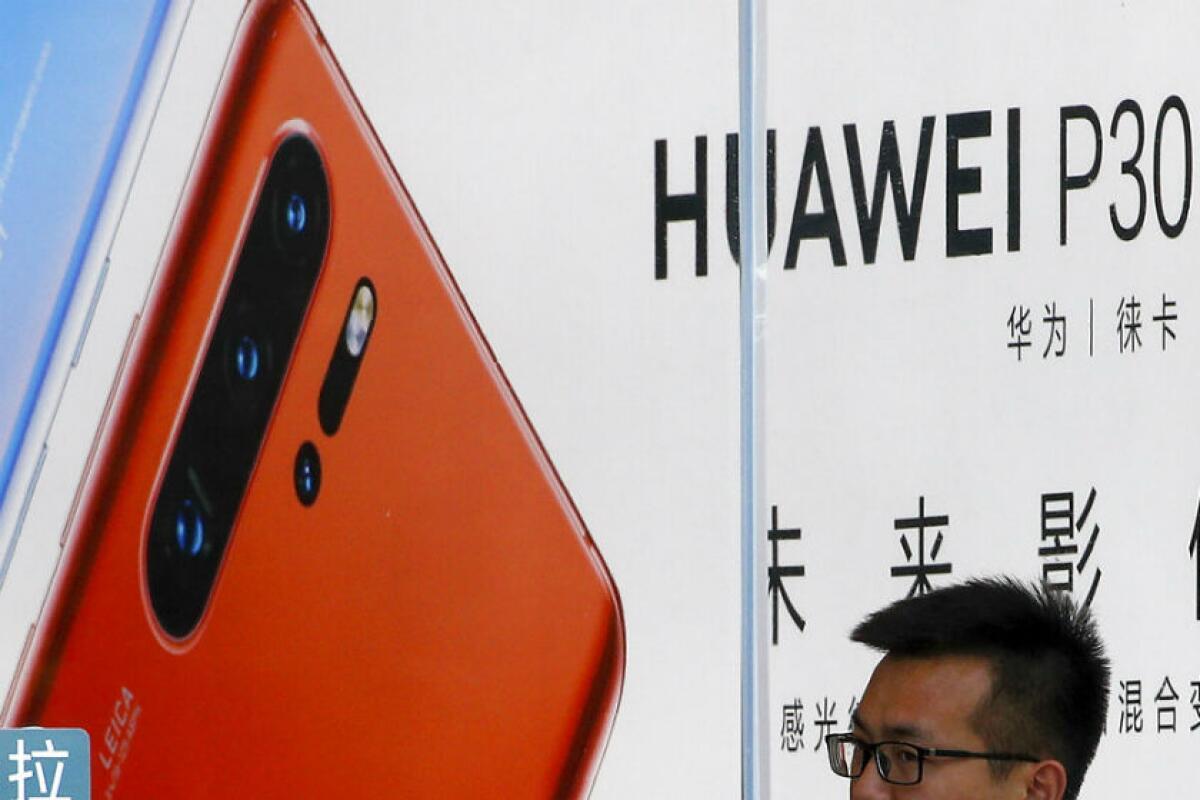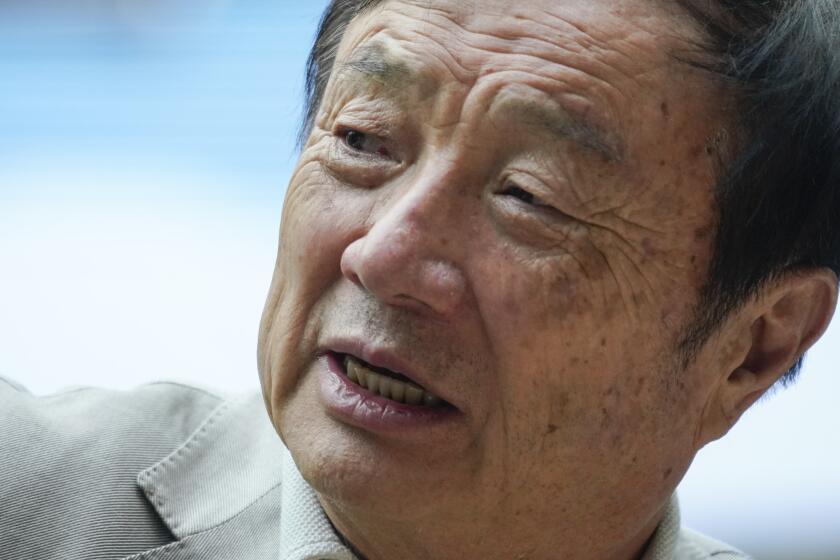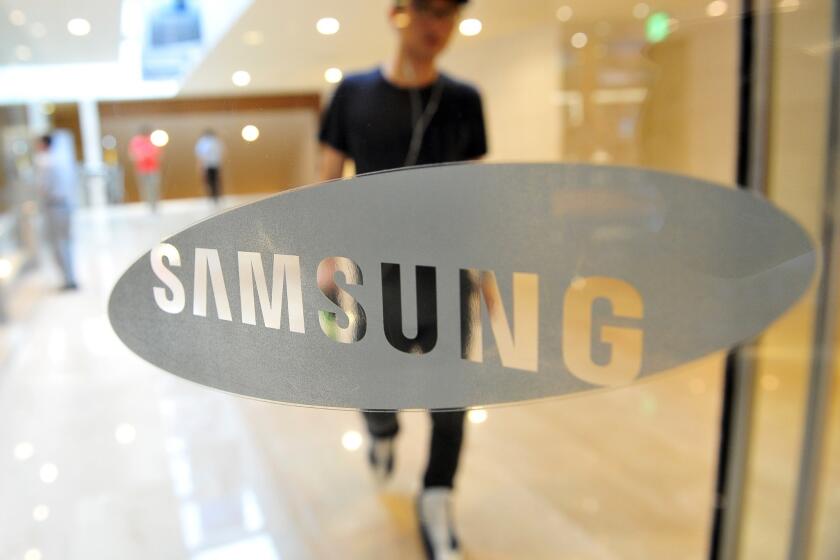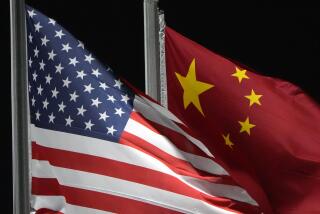Sweden bans China’s Huawei and ZTE from its 5G networks

- Share via
Sweden has become the latest country to ban Chinese telecoms groups Huawei and ZTE from its 5G mobile networks as the Scandinavian nation takes aim at what it calls Beijing’s spying and “theft of technology.”
The Swedish telecoms regulator said Tuesday that, following advice from the country’s armed forces and security services, it had decided to ban Huawei and ZTE from new installations ahead of next month’s 5G spectrum auctions. It gave telecoms operators until 2025 to remove equipment made by the Chinese companies from their existing infrastructure for core functions.
“China is one of the biggest threats to Sweden,” said Klas Friberg, head of Sweden’s security services. He added that China was boosting its economic development and military capabilities by “extensive intelligence-gathering and theft of technology, research and development.”
“This is what we must consider,” Friberg added, “when building the 5G network of the future. We cannot compromise with Sweden’s security.”
The ban in Sweden, which is home to Huawei’s biggest rival, Ericsson, is the latest move in a geopolitical fight over Huawei as the U.S. pushes its allies to exclude Chinese telecoms equipment from planned 5G mobile networks.
Anders Ygeman, Sweden’s minister for energy and digitalization, said the new conditions would give rise to a “much more secure 5G network” but insisted they were not targeted at any individual country or company, despite only Huawei and ZTE having been named.
Huawei has been bloodied by America’s efforts to destroy it, but founder Ren Zhengfei seems confident that China’s largest smartphone and telecom manufacturer will remain formidable.
Tele2, Sweden’s second-largest telecoms operator, has used Huawei as well as other suppliers in its early 5G network, launched in May.
It said Tuesday that it did not foresee any problem in meeting the deadline to fulfill the new security conditions and instead hailed the decision to proceed with auctions of 5G spectrum next month after several delays. Tele2 and Norway’s state operator, Telenor, used Huawei in their 4G network in Sweden.
Sweden’s post and telecoms authority said that four groups, including partly state-owned Telia and a consortium of Tele2 and Telenor, had been approved to bid in the auctions.
It added that central functions — defined as the radio access network, the transmission network, the core network, and the service and maintenance network necessary to provide communication services — could not include products from Huawei or ZTE and had to be controlled by staff and functions based in Sweden. Employment of staff in foreign countries must be phased out by 2025.
Samsung Electronics has clinched a $6.6-billion deal with Verizon to help it build 5G networks in the U.S. -- the latest blow to Huawei.
Ericsson and Finland’s Nokia are well-placed to benefit from a ban on Huawei, although South Korea’s Samsung has also won some 5G deals in Sweden.
Sweden is already in a standoff with China over the detention and sentencing on charges of “endangering national security” of Gui Minhai, a Swedish citizen and Hong Kong-based publisher of gossipy books about Chinese political leaders.
Swedish cities have cut their links to China, and business leaders in Stockholm have called for a rethink of the relationship between the two countries. One of China’s biggest overseas acquisitions, Volvo Cars, is based in the Swedish city of Gothenburg, which is cutting some of its ties with Shanghai.
The tone of the Swedish ban and its explicit singling out of Huawei was in contrast to a similar move in Britain, where the decision in July to phase out the company from 5G networks was based on general and nonspecified risks to national security.
The Swedish decision comes ahead of potentially tough new restrictions in Germany, one of Huawei’s largest markets, set to be introduced in the coming weeks as more European governments seek a way to balance the need to invest in new wireless networks against U.S. pressure to ban Chinese suppliers.
© The Financial Times Ltd. 2020. All rights reserved. FT and Financial Times are trademarks of the Financial Times Ltd. Not to be redistributed, copied or modified in any way.
More to Read
Inside the business of entertainment
The Wide Shot brings you news, analysis and insights on everything from streaming wars to production — and what it all means for the future.
You may occasionally receive promotional content from the Los Angeles Times.












